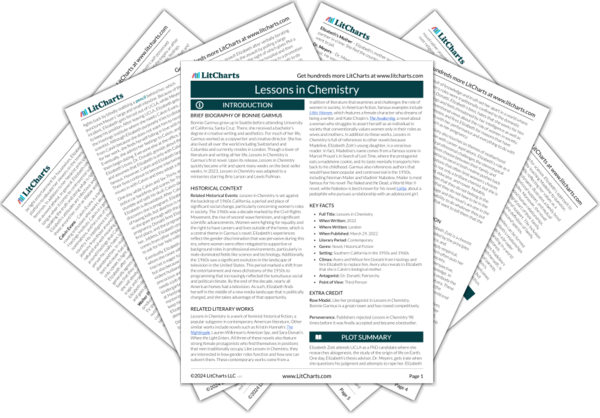AI ToolsNew
Tools to make learning and teaching easier
|
Previous
Chapter 31: The Get-Well Card
|
Lessons in Chemistry: Chapter 32: Medium Rare Summary & Analysis |
Next
Chapter 33: Faith
|


Upgrade to unlock the analysis and theme tracking for all of Lessons in ChemistryLessons in Chemistry!
Get LitCharts A+